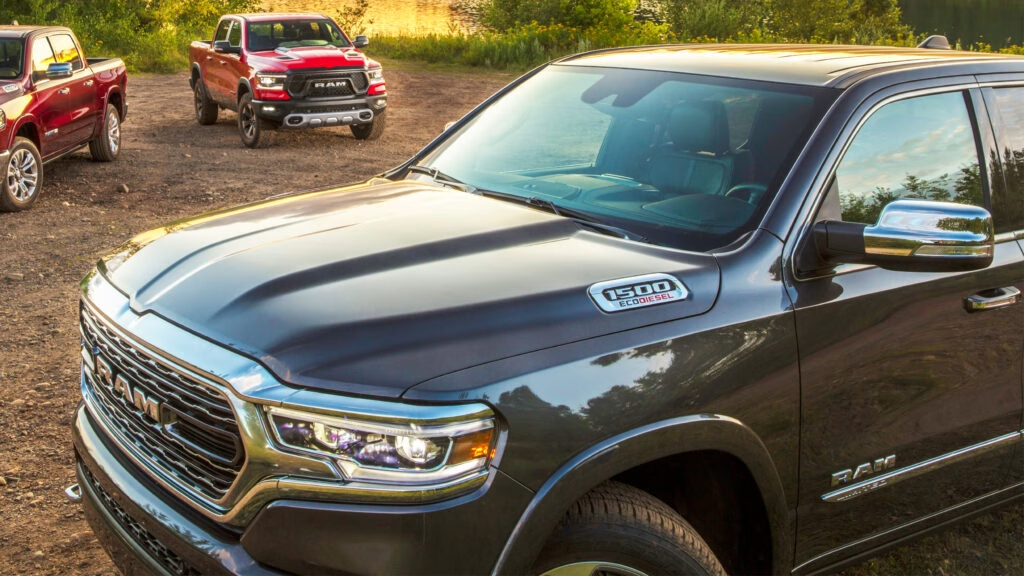What triggered the Ram 1500 EcoDiesel lawsuit and recall?
It all started with a problem that no truck owner wants to hear about—engine fires. Back in 2019, Fiat Chrysler Automobiles (FCA) announced a recall for over 100,000 Ram 1500 EcoDiesel trucks built between 2014 and 2019. The culprit? A faulty exhaust gas recirculation (EGR) cooler. Over time, these coolers could develop cracks due to thermal fatigue, letting coolant leak into places it shouldn’t. The result? In some cases, engine fires that left more than just a dent in the owner’s wallet.
Owners reported everything from smoke and coolant loss to full-blown fires. The recall was FCA’s attempt to get ahead of a growing safety concern, but for many drivers, the damage was already done. The recall included free replacement of the EGR cooler—and, if needed, the intake manifold—but for some, that was too little, too late.
How does the settlement actually help affected Ram owners?
If you owned or leased a 2014–2019 Ram 1500 EcoDiesel, you might be eligible for more than just a new part. The recent class action settlement goes beyond the recall, offering real compensation for those who paid out of pocket for repairs, towing, rental cars, or coolant after a failed EGR cooler. Chrysler has also agreed to extend the warranty on replacement EGR coolers for five years from the date of installation. That’s a big deal if you’re worried about the same problem cropping up again.
But here’s where things get interesting: if your truck actually caught fire due to this defect, you could receive up to $3,000. To qualify, you’ll need documentation—a police, insurance, or fire department report showing the fire likely started in or near the EGR cooler. It’s a straightforward process, but it does require a bit of paperwork.
What about the class action payout—who gets what?
Class action lawsuits are notorious for their complicated settlements, and this one’s no exception. Of the total settlement, $130,000 is earmarked for the 26 named plaintiffs—about $5,000 each. The legal teams, on the other hand, will walk away with a hefty $2.45 million in fees. If that sounds lopsided, you’re not alone. It’s a common gripe in these cases: the people most affected often get a fraction of the total payout.
Still, for everyday owners, the real value comes from the warranty extension and the chance to recoup out-of-pocket expenses. For many, that’s a welcome relief after years of uncertainty and repair bills.
Are there lessons for truck owners and automakers?
Absolutely. This case is a textbook example of why automakers need to take recurring defects seriously, especially when safety is on the line. According to the National Highway Traffic Safety Administration (NHTSA), engine-related recalls are among the most expensive and reputation-damaging for manufacturers. For Ram owners, the lesson is clear: keep documentation of all repairs and incidents, especially when dealing with known defects. That paper trail can make all the difference if a settlement or recall comes your way.
On the automaker side, transparency and proactive recalls can help avoid drawn-out lawsuits and negative press. FCA’s decision to recall the affected trucks and offer extended warranties is a step in the right direction, but it also highlights how costly it can be to address problems after the fact.
How can affected owners claim their compensation or warranty coverage?
If you think your Ram 1500 EcoDiesel is covered, don’t wait. Start by gathering all your repair receipts, towing bills, and any documentation related to the EGR cooler issue. If your truck caught fire, make sure you have the necessary reports. Most settlements like this have a claims portal or hotline—check the official FCA or Ram recall website for details.
Timing matters. There are usually deadlines for submitting claims, so the sooner you act, the better your chances of getting reimbursed. If you’re unsure whether your truck qualifies, your local dealer or a trusted mechanic can help you check your VIN against the recall list.
The big takeaway? Getting fair compensation after a recall isn’t about perfection—it’s about smarter adjustments. Start with one change this week—like organizing your repair records—and you’ll likely spot the difference by month’s end.

